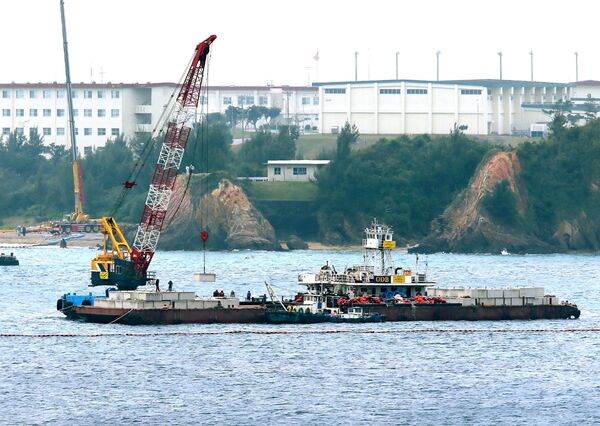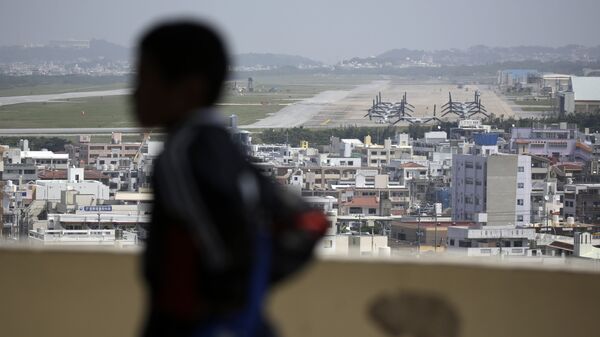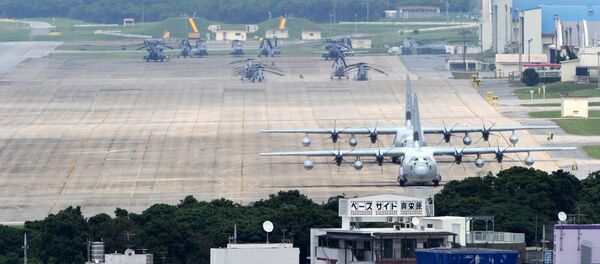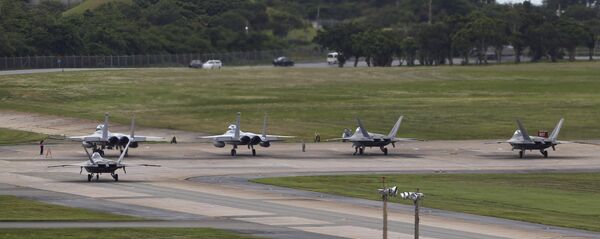The government of Okinawa prefecture lodged a legal complaint in the Naha district court on July 24, citing environmental concerns. It is the fifth time that the local government has filed a lawsuit to prevent the construction of the base close to the coastal town of Nago, Henoko Bay. The new airbase will relocate US troops who are currently stationed at the Marine Corps Air Station Futenma, located in Ginowan City.
Okinawans have campaigned for the closure of the Futenma base for decades because of security risks posed by the troops' presence. The southwestern Japanese island hosts about half of the US military personnel in Japan, of which there are over 50,000 in total, as well as 40,000 dependents and another 5,500 American civilians employed there by the US Department of Defense.
Okinawa was conquered by the United States during a grueling three-month campaign in early 1945. Over a quarter million US servicemen fought to take the archipelago, which had a prewar civilian population of about 300,000, approximately half of whom were killed or committed suicide. The US ruled Okinawa as a military outpost until 1972, when control was returned to Japan; however, 40 years later, 32 US military bases remained on the island.

Criminal acts committed by US troops against the local population, including rape and robbery, have hardened opinions against the presence of the troops. As a result, the US military and the Japanese government have pledged to relocate the base from Ginowan to a less sparsely populated location, but many locals want to see the base construction plans scrapped altogether.
Despite protests, in April the Japanese government began constructing seawalls for the replacement facility in the coastal area of Nago. The government is dumping building materials into the sea and plans to launch full-fledged landfill work inside the seawalls possibly in the first half of next year, Kyodo reported.
Tamada Masaya, general secretary of the National Association of Dockworkers Unions, told Sputnik that not only do local people fear the threat from US servicemen, they are also worried about the threat of war.
"Port workers carry out transportation of the material, and they must not be allowed to participate in illegal activities. These kinds of activities do great harm to our colleagues in Okinawa," the official said.
"In the long term, construction of the military base could drag us into a war. As a rule, when hostilities begin a port becomes the place where weapons and supplies are delivered and such a base could well become the object of a military attack."
"As a result, port workers who are not servicemen will be the first victims of the attack. The possibility of such a development of events should alarm us today. Port workers must do their utmost to prevent being drawn into a war. We must not forget that such a danger threatens primarily the port workers of Okinawa, and they understand this well," Masaya said.




